LIHU‘E — Mayor Derek Kawakami announced the Kaua‘i Stay At Home order on Monday, promising more information for the public today and confirming the fourth case of COVID-19 on the island.
Kawakami said Monday the Department of Health is working with an adult male visitor — the fourth case of COVID-19 — to determine any close contacts during his stay on Kaua‘i.
The first two confirmed COVID-19 cases on Kaua‘i were a visiting couple from Indiana; they are still in isolation. The third, a resident recently returned from New York, is isolated at home and in stable condition.
As of Monday afternoon, the number of statewide positive cases was at 77, with 21 new cases that popped up overnight. Four people have required hospitalization.
Kawakami emphasized those numbers in a Monday address to the public, also announcing his full support of a statewide Stay at home, Work from home Order Governor David Ige announced Monday.
Ige’s order takes effect at 12:01 a.m. on Wednesday, March 25.
“While I realize our numbers on Kaua‘i may seem low at this point in time, we know that these cases will grow exponentially if we don’t get a handle on them now,” Kawakami said in his address. “I am imploring each and every one of you to stay home unless it’s absolutely necessary to be outside of your home.”
Ige’s rule does have a few exemptions and essential services allowed to be out an about during the Stay At Home order — including a list of about 25 exempt fields of work.
Some of those exemptions include health care services and facilities, stores that sell groceries and medicine, educational institutions, farms and those involved in agriculture production, gas stations and businesses needed for transportation, hardware and supply stores, and laundry services.
Residents may also leave home to buy food, exercise or take care of the elderly so long as they stay at least 6 feet away from other people as much as possible. The order takes effect at 12:01 a.m. Wednesday and will remain in place through April 30.
“You should stay at home. If you need to go to work, go to work and when you’re done with work, you should come back home. If you need to get groceries and necessities, you should go get groceries and necessities. For any other time you should be at home,” Ige said at a news conference.
Kawakami cited the list of exemptions Monday, and said he is working with his team to continue to draft Kaua‘i-specific rules, which, he says, will be released today.
“But here’s the bottom line,” Kawakami said Monday. “Stay at home unless it is absolutely imperative to leave. Please. Now is the time.”
The move comes after the mayors of Honolulu and Maui counties in recent days announced their own stay-at-home orders. Honolulu’s order took effect Monday at 4:30 p.m. Some of O‘ahu’s largest malls, Ala Moana Center and Pearlridge, both announced they would close in response.
Over the weekend, Ige issued an emergency proclamation requiring travelers to come to the islands to stay in quarantine for 14 days after they arrive. Officials said they expect most tourists simply won’t come after hearing about the new rule, which takes effect Thursday.
Residents will no doubt return, but officials are counting on them to show aloha and follow the new mandate out of concern for their community.
“Let’s not infect anyone else from our beautiful state,” Kenneth Hara, the director of the Hawai‘i Emergency Management Agency, said over the weekend.
Yet Hara acknowledged the rule will be difficult to enforce.
All those arriving will be required to fill out a form with their name, phone number and address where they are staying. An official will check the identification of those arriving and verify the information on their form.
Flight crews won’t have to follow the quarantine but will have their temperatures taken. Those with elevated temperatures will have to isolate themselves.
Police officers will be responsible for enforcing the quarantine.
Officials say hotels will call those with upcoming reservations to inform them that the mandate will require them to stay in their hotel rooms for two weeks or for the duration of their stay, whichever is shorter.
Hara said authorities will ask hotels to let them know when someone isn’t complying.
“I don’t think there’s much appetite for 14 days in a hotel. As much as people like visiting a hotel, they come to Hawai‘i to sleep in the hotel and spend a lot of time out of their room,” said Peter Ingram, CEO of Hawaiian Airlines.
A day after Ige announced the new rules on Saturday, Hawaiian Airlines said it would suspend most of its flights to Hawai‘i from outside the state, while paring back its inter-island offerings.
Hawaiian plans to maintain one daily nonstop flight between Honolulu and Los Angeles and another between Honolulu and Pago Pago, American Samoa to maintain what it called “a baseline of out of state access.”
Jerry Agrusa, professor at the University of Hawai‘i’s School of Travel Industry Management, said he wishes the state would just put a stop to passenger air travel.
“We’re an island. We could be the place that would be least affected if we shut down the planes,” Agrusa said.
Then, when the virus passes, Hawai‘i would be the first place to be healthy, he said.
Agrusa was also critical of the state for waiting until Thursday to implement the quarantine. This allows people to move their flight plans up to get here before the mandate kicks in, he said.
Bruce Anderson, the director of the state Department of Health, said Hawai‘i needed time to allow people to change their travel plans.
“I think we’ve moved as quickly as you can without creating mass confusion,” Anderson said.
Ige said he set Thursday as the date for the rule to take effect to allow industry partners time to adjust. Hawaiian Airlines said it would keep its regular flight schedule through that day to allow visitors to Hawaii to get home and to bring planes back to the islands.
Hara said the number of visitor arrivals have already plummeted 67% since Ige last week asked people to postpone their Hawaii vacations for at least one month. Three-quarters of the decline has been from other countries, he said.
•••
Associated Press contributed to this story.
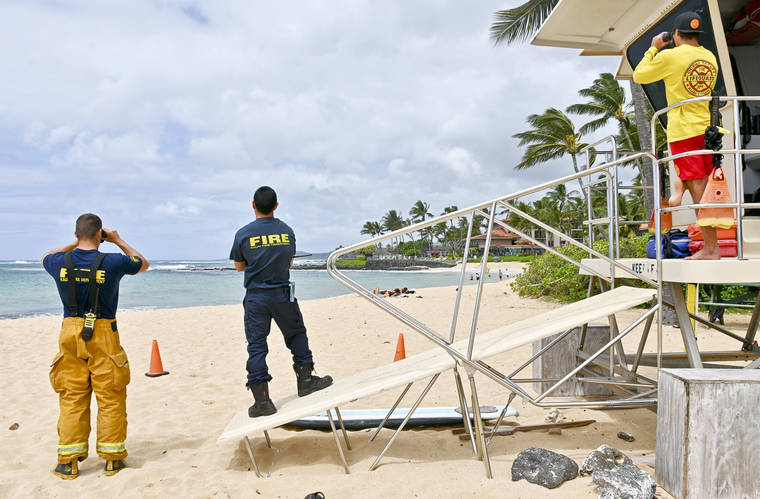
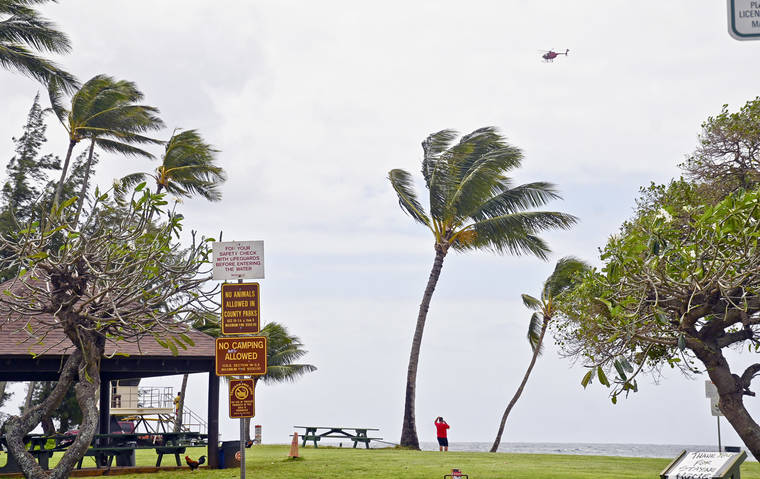
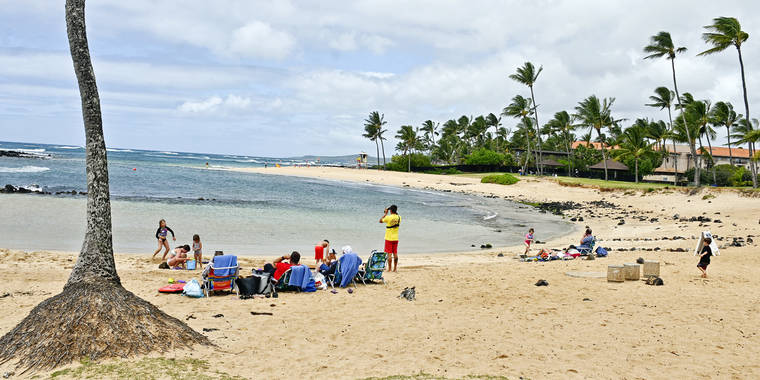
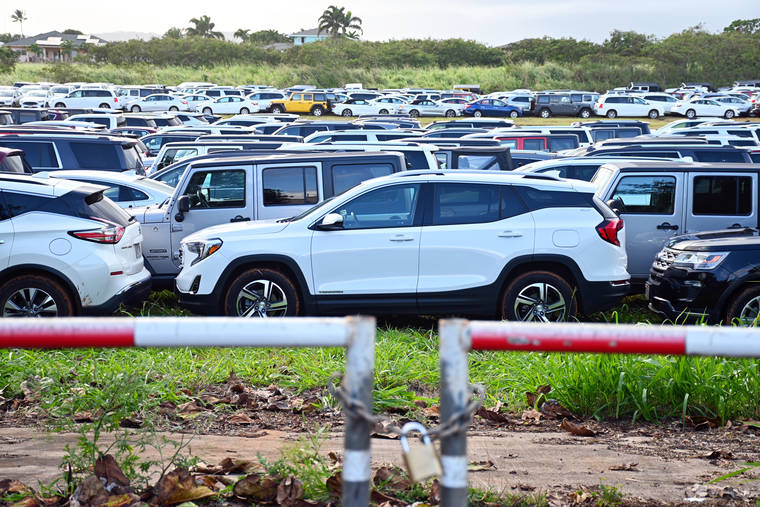
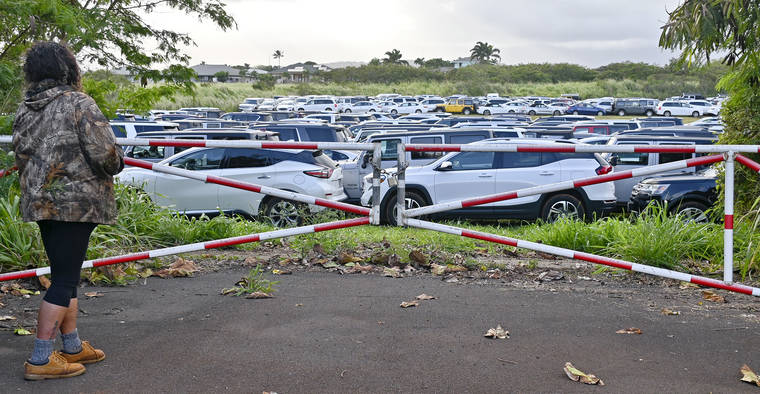





It’s amazing how suddenly having boarder enforcement is such a blessing; living on an island with natural boarder barrier.
The southern boarder of the united states introduces sickness and death to mainland residents, but since it doesn’t affect Hawaii, the entire state scoffs at Trump’s efforts to close those boarders.
When it is your own kid or loved who may be affected, the noise is loud. When someone else there is silence.
Boarders are healthy and important!
Try: BORDERS
Too little too late. 3 out of the 4 infected are tourists; had all these new rules been put in place earlier, those sick tourists never would have arrived on Kauai and our island would have been one of the very few safe havens in the world. All this should have been enacted and enforced at least 2-3 weeks ago. Our leadership hesitated because they wanted to accumulate that last drop of sweet tourism GDP, and now their greed and indecision has put us at even greater risk.
I hope that one of my neighbors, who’s hosted parties for their friends for the past three days, will get this message, I’m sure the entire neighborhood will be better.
Why we have a traffic problem on the island…too many rental cars
Visitors, tourists coming here and being here are endangering the lives of residents. On Kauai 3 of our 4 cases are tourists and one was a person that traveled and came back with it. We can clamp it down better and take care of our residents if we don’t have travelers that keep bringing it in. (and possibly using up an ICU bed.)
Where does this mandate leave United States Citizens as to what Our Constitutional Rights are?
The Sky is not Falling Chicken Little!
We have nothing to Fear but Fear itself!
Sad to see our Political class instilling Fear into the minds of the Simple! Could our political leaders be of Simple Minds?
Two Questions:
1) Given the number of infections in Oahu, shouldn’t passengers arriving from Honolulu be quarantined as well?
2) How many tests have been administered in Kauai? This would give us a better sense of how much we can rely on our statistics.
“But here’s the bottom line,” Kawakami said Monday. “Stay at home unless it is absolutely imperative to leave. Please. Now is the time.”
So many people not kept even necessarily distance at Walmart!….
Thank you very much, mister Kawakami!
I would like to vote for you as Hawaii State governor…
What about the love ones that need to fly to Honolulu because our hospital over here on kauai can’t help them because kauai doesn’t have the medical facilities to help them you or anyone else going to tell them that they can’t come home to kauai I never say to any Kauai resident that they can’t come back home.
Using this forum to make political statements is a sad course to follow. The only hope we have is to isolate and stop the non essential flow onto the island – especially the airport. Trusting people to “self quarantine” has some serious flaws. Testing has some serious flaws. Even communicating has some serious flaws. We can do better and we must do better. Kauai will survive – let’s come together to make a path for Kauaian’s to survive.
Does anyone know to who or how one may request and exception to the flight quarantine order?
Does not seem fair to see happy tourists vacationing on Hawaii while we can’t go on our vacations. The rental cars shouldn’t be allowed to rent cars during this lockdown.
No one from any other islands should be allowed here unless they live here, Kauai residents on ly. That needs to be the last mandate. Other governors are not letting people out of certain areas to infect other areas. And all of you who keep coffing, sneezing, spitting on the ground, sniffing up your galagalas. Knock it off. Because everyone you infect will probably bachi you! So knock it the hell off! Also, quit being mean to other people who may be very scared, like the elderly, or the mentally ill or the homeless, or little old aunties who can’t defend themselves. Do you like to beat up on puppies and kittens as well? Others will see your behavior, and not like you when this is over. Do not be a jerk.
Also, and my I strongly add, if you are in a house with kupuna and children you MUST keep them separated from each other! (This includes teenagers and young adults). This is the very reason for the closing of the schools and the separation. Kids, teens and young adults are supercarriers, carrying the virus home to the kupuna! Hello! Did you not get the memo? One cough, one sneeze on your tutu and you may never see her again! Listen!
There needs to be a very strong article written in this newspaper adressing this!!!!!!!!!!!!
Where are those crakc journalists, waving the flag of integrity and charging the line, with the “Stop the presses, keep the keikis away from the kupuna during quarantine”!
If your mom and dad are locked upo with your kids for 2 weeks sharing the same very close quarters and air, they can become infected with the coronavirus from your kids, teens, and young adults. even from YOU. YOU MUST SEPARATE YOUR KUPUNA FROM THE OHANA!!